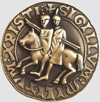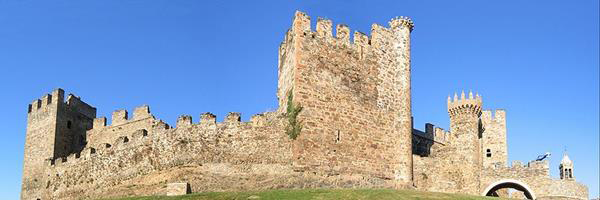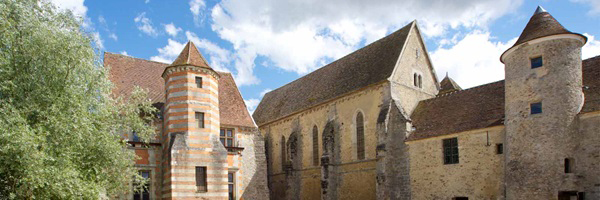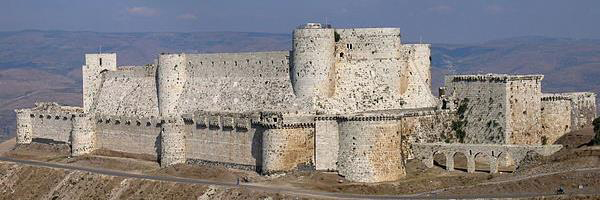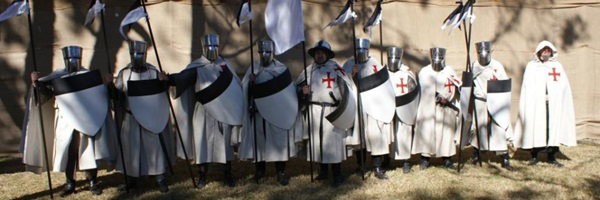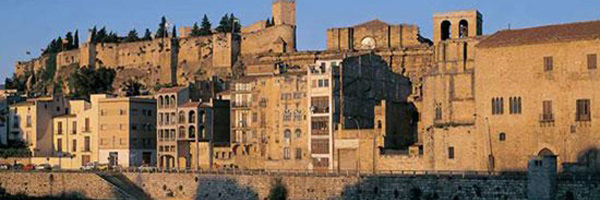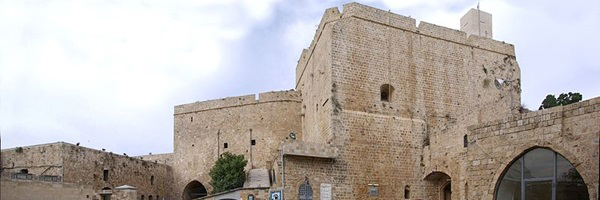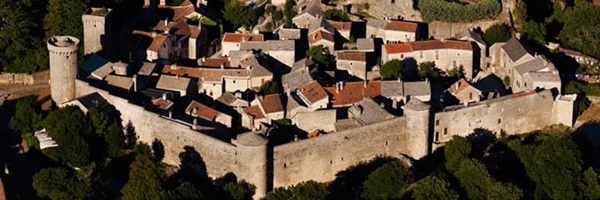Considerantes dudum 6. Mai 1312
Clement, bishop, servant of the servants of God, for assurance in the present and for future record. The inquiries and various processes commissioned not long ago by the apostolic see through all parts of Christendom against the former order of Knights Templar and its individual members, concerning accusation of heresies, brought them into grave disrepute. In particular there was the accusation that the brothers of the former order at, and sometimes after, their reception denied Christ and spat in his dishonour on a cross held out to them, and sometimes trampled it underfoot. The master of the order, the visitor of France, the chief preceptors and many brothers of the order confessed at their trial to these heresies. The confessions cast grave suspicion on the order. In addition, the widespread disgrace, the strong suspicion, and the clamorous charges of the prelates, dukes, communes, barons and counts of the kingdom of France also gave grave scandal which could hardly be allayed without suppression of the order. There were many other just reasons mentioned in the legal process which influenced us. We therefore, with the approval of the sacred council, our heart filled with great bitterness and sorrow, suppressed and abolished the said former order of the Temple and its constitution, habit and name and we forbade its restoration. We did this, not by definitive sentence since we could not legally do this according to the inquiries and processes mentioned above, but by apostolic provision and ordinance. We reserved the persons and property of the order to the decision and disposal of the apostolic see. In doing so, however, we had no intention of derogating from the processes made or to be made concerning individual persons or brothers of the said former order by diocesan bishops and provincial councils, as we have ordained elsewhere.
Now therefore we wish to provide more suitably for individual persons or brothers. We reserved lately for our own disposition the master of the former order, the visitor of France and the chief preceptors of the holy Land, Normandy, Aquitaine, Poitou and the province of Provence, as well as brother Oliver de Penne, a knight of the said former order, whom henceforth we reserve to the disposition of the apostolic see. We have decided that all the other brothers should be left to the judgment and disposition of provincial councils, as we have indeed done until now. We wish judgment to be given by these councils in accordance with the different cases of individuals. Thus those who have been legally acquitted, or will be acquitted in the future, shall be supplied with the goods of the former order whereby they can live as becomes their state. With those who have confessed concerning the above errors, we wish the provincial councils prudently to temper justice with mercy: the situation of these men and the extent of their confessions are to be duly weighed. With regard to those who are impenitent and have relapsed, if any — which God forbid — be found among them, justice and canonical censure are to be observed. As for those who even when questioned have denied their involvement in the above errors, the councils are to observe justice and equity according to the canons. With the approval of the sacred council, we hereby cite those who have not yet been questioned and who are not held by the power or authority of the church but are perhaps fugitives, to appear in person before their diocesans within a year from today. This we assign them as a precise and final limit. They are to undergo an examination by their diocesans, receiving a just judgment from the said councils according to their deserts. Great mercy however is to be shown and observed both to these last and to those previously mentioned, except the relapsed and impenitent. They should also be provided from the property of the order with the necessities of life; all the brothers of the former order, whenever they return to the obedience of the church and as long as they persist in that obedience, shall be maintained as becomes the circumstances of their state. All of them shall be placed in houses of the former order or in monasteries of other religious, at the expense however of the former order itself according to the judgment of the said provincial councils; but many of them shall not be placed together at the same time in one house or monastery.
We order also and strictly command all those with whom and by whom the brothers of the former order are detained, to surrender them freely whenever required to do so by the metropolitans and the ordinaries of the brothers. If within the year those cited do not appear before the diocesans, as stated above, they incur automatically sentence of excommunication; and because in a case especially concerning the faith, contumacy adds strong presumption to suspicion, the contumacious who stubbornly remain excommunicate for a year are henceforth to be condemned as heretics. This citation of ours is made of set purpose and we wish the brothers to be obliged by it as if they had received a special citation personally, for as vagabonds they can in no way be found or at least not easily. In order, then, to prevent all subterfuge, we publish our edict in the present sacred council. And in order to bring this citation more assuredly to the knowledge of the brothers themselves and to the general knowledge of all, we shall have papers or parchments containing the citation and sealed with our bull hung or fastened to the doors of the principal church of Vienne. This will secure a loud and widespread publication of this citation, so that the brothers whom the citation concerns can claim no excuse that the citation has not reached them or that they were ignorant of it, since it is improbable that what is so openly made public to all can remain unknown or hidden to them. Furthermore, in order to observe greater precaution, we order the local diocesans to make public this edict of our citation, as soon as conveniently possible, in their cathedrals and in the churches at the most conspicuous places in their dioceses.
Given at Vienne on 6 May 1312 in the seventh year.
Sollte jemand den Text in Deutsch oder Latein haben, wäre ich froh eine Abschrift zu bekommen.

